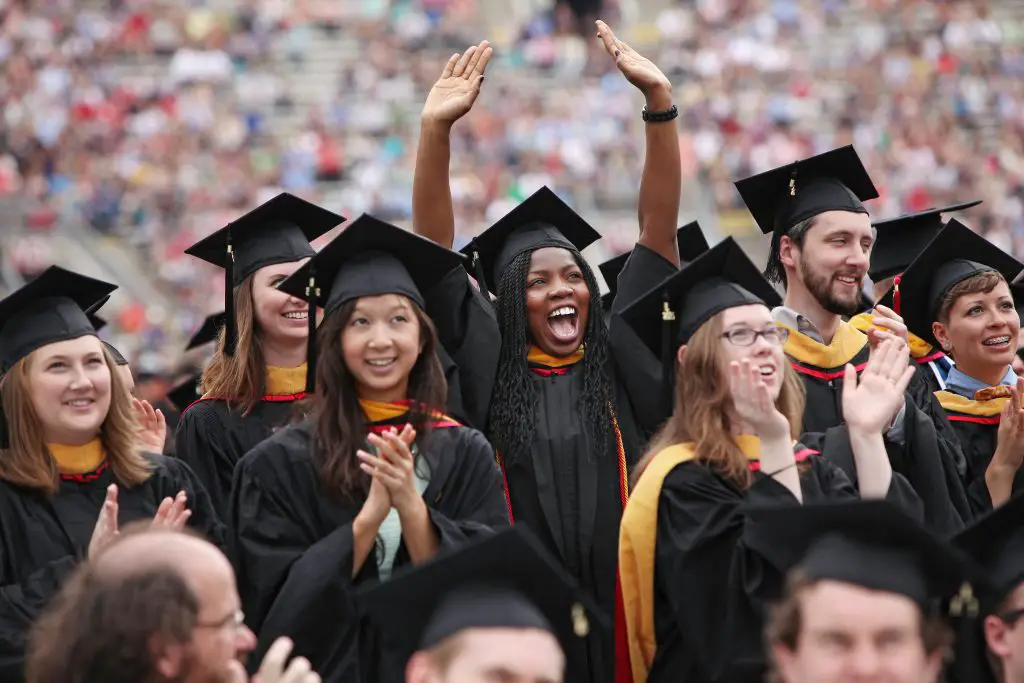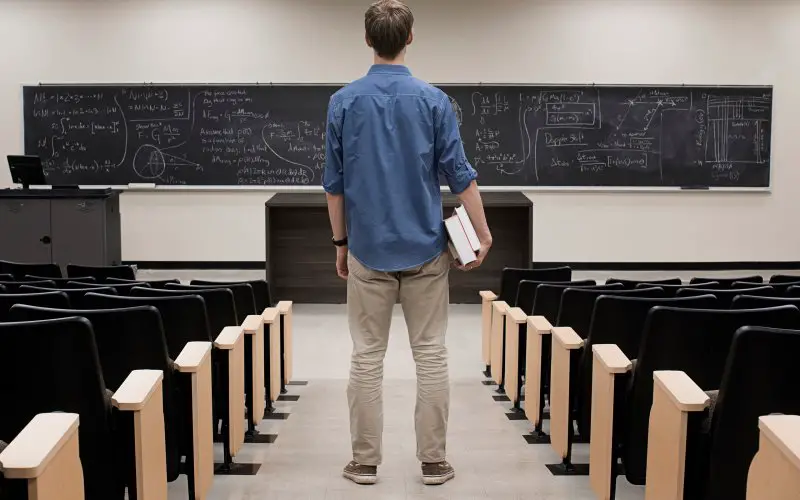The College Advantage
Somewhere in the midst of complaining about homework and studying all night for a test, remember to consider how lucky you are.
By Tim Philbin, College of the Holy Cross
As the days grow shorter and the evenings grow chillier, college students across the nation can no longer deny it: Summer is over.
Fall has arrived, and school along with it. For now, the sting of lost freedom is still fresh, but soon enough, the rhythm of school will become comfortable once again. Joyful reunion with friends, new and interesting classes, and all the other things that make students excited to be at college once again.
College is awesome, and students should feel excited to be able to partake in it, but rarely do they view this exciting and wonderful thing called college as a privilege. At least, I know I don’t.

For me, college was almost a birthright. My parents and grandparents all hold bachelor’s degrees, and most of them have postgraduate degrees to boot. I was lucky enough to be able to go to a small prep school with a whole team of advisors who were there to help mold me into the ideal college applicant. I received instruction from a professional tutor to boost my SAT scores. I could go on, but you’d be reading this article for awhile. The point is that I did not have to work especially hard to get into a college; in a nutshell, all I had to do was graduate from high school without a criminal record and I could get in somewhere, even if it wasn’t some highly prestigious Ivy League institution.
Statistics show that my experience is not unique. For example, according to a survey conducted by “The Crimson,” Harvard University’s student newspaper, most Harvard students come from families making more than $125,000 a year. The median income in the Unites States is about $50,000. That’s a concerning disparity. Furthermore, graduation rates break down by income as well: where 77 percent of adults from families in the top income quartile earned a bachelor’s degree by the time they were 24, only 9 percent from the lowest income quartile were able to do so.
Statistics also indicate that this inequality is self-reinforcing. Despite what you may have heard about unemployment among college graduates, people with bachelor’s degrees are making more and more money, and those without a BA are making less and less. Take this research done by the Pew Research Center.
The income gap between the educated class and the uneducated class is widening.
A bachelor’s degree is becoming increasingly predictive of future financial success, and yet people from poorer families are having an increasingly difficult time getting into and graduating from college. Social mobility is dying, if not already dead.
There is a metric used in sociology called the capitalization rate. The cap rate of a given society is the number of people who can do a given thing divided by the number of people who actually go on to accomplish that thing. For example, the capitalization rate among doctors in America would be the number of Americans who are capable of being doctors divided by the number who actually become doctors. Capitalization rate is a fairly good measurement of the possibility of social mobility in a given society. Honest and fair societies have a high capitalization rate, and entrenched and unequal societies have a low one.
Americans like to think that they have an exceptionally high capitalization rate; after all, this is the Land of Opportunity, where one’s success is limited only by how hard one will work for it.
But clearly this isn’t true.
The facts simply don’t support it. College gets more and more expensive, so only the rich can afford to send their children to college, and then a college degree is what allows you to become rich and send your kid to college.
The rich become richer and the poor become poorer, and at the end of the day everyone loses because America’s talent is squandered.
With few exceptions, it is not the smartest kids who go to college, but rather those who can pay.
So where does that leave today’s college students? Should students feel guilty for being able to go to college?
Allow me to be clear: The answer is unequivocally no.
No one should feel guilty for coming from a given background. But I think students should be always cognizant of the fact that to be able to go to college and get an education is a tremendous privilege, one that many Americans will never have.
Furthermore, I think the realization that college is an immense privilege should inform how you think about your education. Too often, students view college as a way to find an avenue into a lucrative career and then make a bunch of money for themselves. Given that college is such a privilege, I’m not sure it’s correct to think about it in this way.
Yes, you can use a degree to make a bunch of money so you can buy a nice car and a huge house and fancy clothes, but how responsible is that? The ability to attend college is a privilege, and like any privilege it comes with a certain degree of responsibility. A degree can be your ticket to wealth, but it can also be a tool to help others.
There is no solving this problem until those with the means to do so take steps to bridge the gap and make college more accessible to those of lower income.
Consider how you can put your education to good use. I’m not saying that you have to found a homeless shelter, or donate all your belongings to charity, but remember, the problem of entrenched inequality affects everyone, and so we should do what we can to solve it.

















